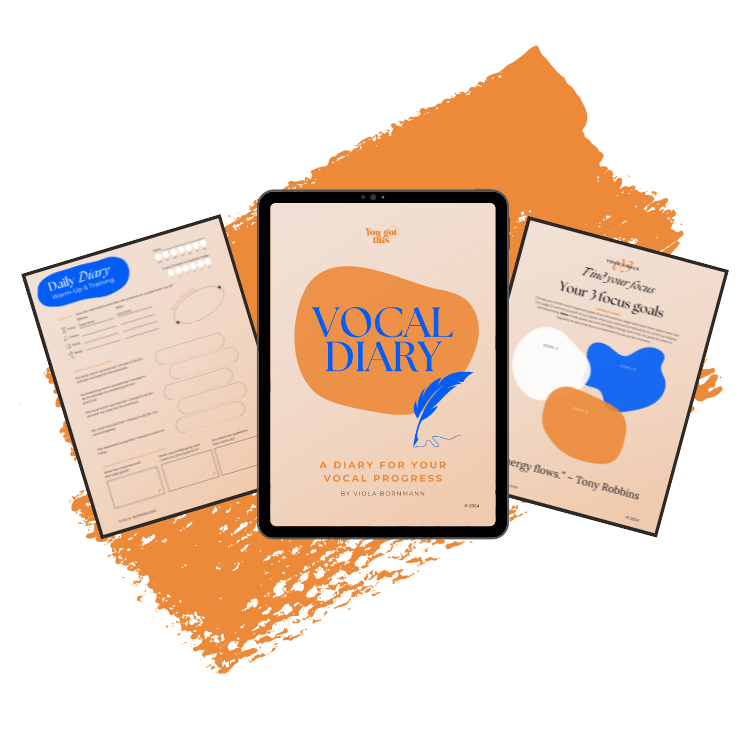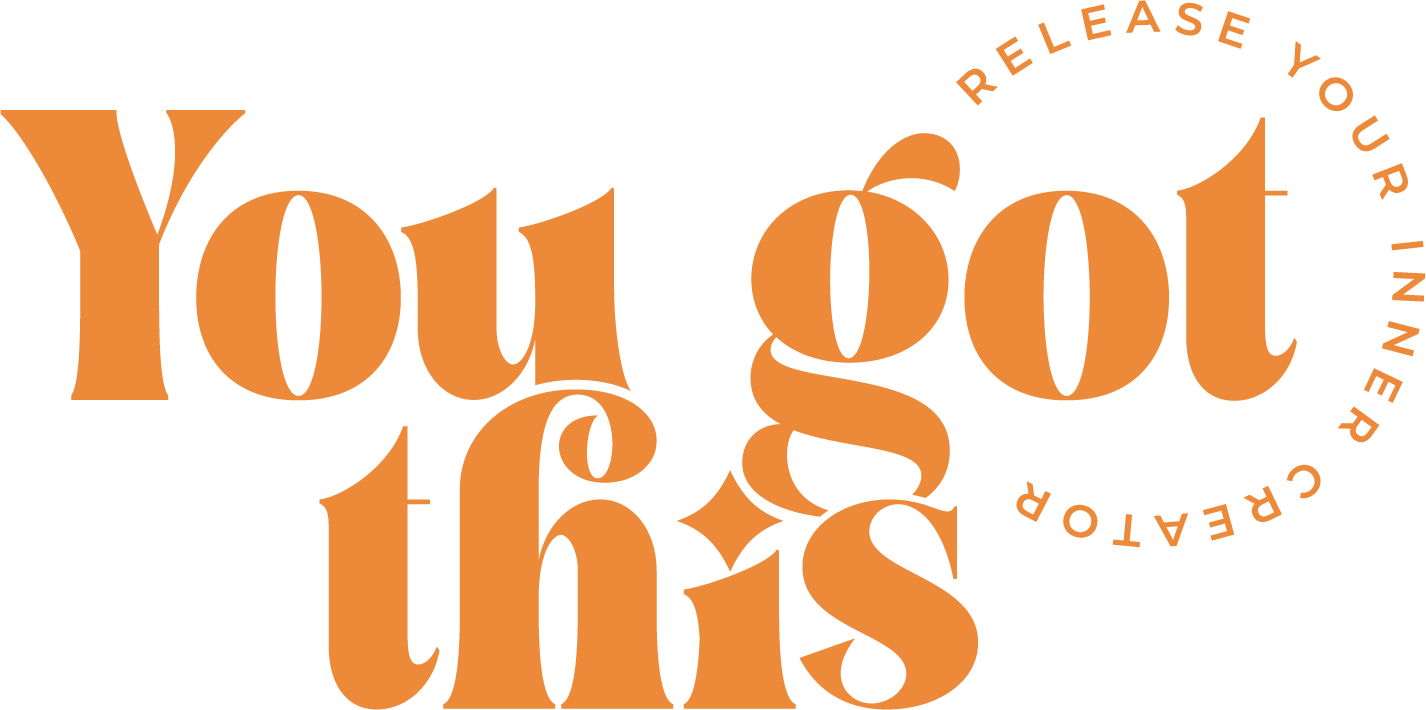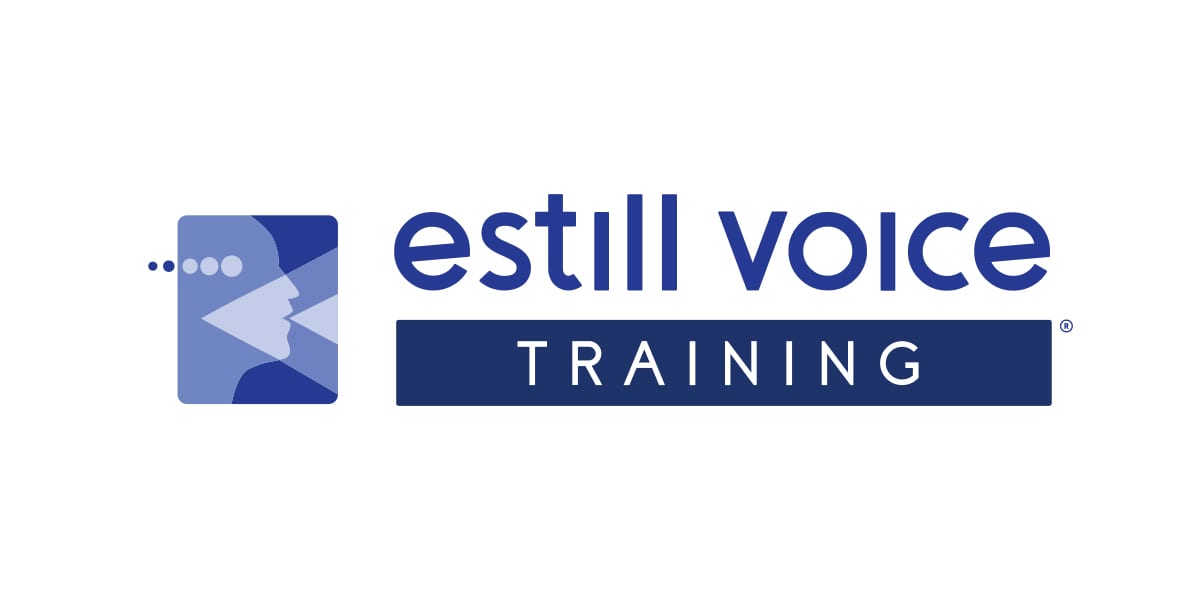BLOG
Reclaim your voice – both inside and outside.

#3 | Clear and confident: Tools for a relaxed voice in stressful situations
Around 18 years ago, when I started studying, the frog in my throat was one of my clingiest friends whenever I had to give a presentation. The funny thing is, if you had asked me to sing in front of people, that wouldn't have been a problem.
So, I wanted to know: how can I have more control over my speaking voice? I found out that what happens to our speaking voice is closely connected to our singing voice.
Introduction: The frog in my throat was my clingiest friend
Has that happened to you?
You're standing in front of a group of people, maybe your team or people from your seminar, and all of a sudden, your voice sounds so different – way too high and squeaky. You have the feeling that you can't control your voice and ask yourself: "Is that me talking?"
If that or something similar happened to you, I can assure you, that you’re not alone. And even if it never happened to you – sometimes it's already stressful enough if we're afraid that something like that MIGHT happen.
Around 18 years ago, when I started studying, the frog in my throat was one of my clingiest friends whenever I had to give a presentation. The funny thing is, if you had asked me to sing in front of people, that wouldn't have been a problem.
So, I wanted to know: how can I have more control over my speaking voice? I found out that what happens to our speaking voice is closely connected to our singing voice. And I learned techniques and tools to help myself.
Today I want to share a few of these tools for a more comfortable and relaxed voice which will bring you more control and confidence in stressful situations.
Table of contents:
Why does our voice get higher when we’re nervous?
Exercises for a relaxed voice
Body: Relax the muscles that support the voice
Face: Bring movement into your facial muscles
Tongue: Release unnecessary tension
Voice: Find your most comfortable tone
Mind: Stopping the spiral
Conclusion
1. Why does our voice get higher when we’re nervous?
Often, people tell me that their voice suddenly becomes high and squeaky in stressful situations, which feels unnatural and awkward. Why does that happen?
To break it down, our voice consists of many muscles that work together. Our pair of vocal folds are inside the larynx, going horizontally from the front to the back. When we breathe, air goes through our windpipe and therefore through our larynx, and the vocal folds start to vibrate, producing sound.
Rate of Vibration:
One factor responsible for pitch is the rate of vibration in our vocal folds. When we get nervous and our body tenses, the muscles in our vocal tract also tense, which makes the vibrations faster, raising our pitch. We likely also feel constriction in our voice.
Position of the larynx:
Another factor responsible for our pitch is the position of our larynx.
Try yourself:
Place your hand gently on your throat where you can feel the larynx. The vocal folds are located approximately behind the notch that we call the "Adam’s apple" in the male voice.
Let’s experiment with the position of the larynx:
Neutral Larynx Position: Say something in your normal speaking voice; you will probably feel a vibration underneath your hand.
High Larynx Position: Squeak like a little mouse or talk like a little kid; you will probably feel that the larynx raises.
Low Larynx Position: Say "ho ho ho" like Santa Claus; you will probably feel that your larynx lowers.
I wouldn't recommend lowering the voice by holding on to a low position of the larynx because this can also cause tension.
On the other hand: if the vocal tract is already tense and higher because of a stressful situation or a busy daily life – due to having a lot of work, not getting enough sleep, or being in a loud environment – relaxation will then lower your voice without having to add extra pressure.
An effect you might have experienced after a nice massage or meditation, where the voice suddenly sounds softer, fuller, and lower.
That's why in this blog post, I share tools to find the most relaxed position of your larynx, for a voice that can work with the most comfortable vocal effort and ease.
2. Exercises for a relaxed voice
In the following part, I will share exercises for a more relaxed voice. These exercises are for our body, voice, and mind, which can all affect our voice. You can do these exercises in your daily life and also right before stressful vocal situations, like presentations.
3. Body: Relaxation for the muscles that support the vocal tract
To bring specific focus to the muscles that support the voice, start by massaging all the areas around your vocal tract: your shoulders, neck, chest, and face (forehead, chin, eyebrows... everything that feels good).
4. Face: Bringing movement into the facial muscles
Then activate the facial muscles by making "funny faces." Start with small and soft movements, then gradually get bigger. You can also make a big yawn. Move your lips as if you want to find out how they taste.
5. Tongue: Releasing unnecessary tension
In singing and speaking, the tongue often doesn't get enough attention although it plays an important role and works a lot. The tongue is connected to our larynx, which means that possible tension in the tongue can spread to our larynx, the source of our sound.
To release the tension, you can give your tongue a good stretch.
Here is how you do that:
Forward: Stick out your tongue forward as far as you can feel a stretch. Hold for 5 seconds. Relax your tongue and repeat that 5 times.
Left & Right: Stretch your tongue to one side. Hold for 5 seconds. Relax your tongue and repeat that 5 times.
Stretch your tongue to the other side. Hold for 5 seconds. Relax your tongue and repeat that 5 times.
Upwards: Stretch your tongue upwards. Hold for 5 seconds. Relax your tongue and repeat that 5 times.
Downwards: Stretch your tongue downwards. Hold for 5 seconds. Relax your tongue and repeat that 5 times.
Precautions: Stop immediately and inform your doctor if you experience discomfort, pain, or numbness. If you've had mouth surgery, consult your doctor before starting these exercises.
6. Voice: Finding the most comfortable tone
Humming & Chewing:
Humming and chewing is one of my favorite exercises for the speaking voice and helps a lot in finding a comfortable pitch for our voice.
We go step by step:
Start the hum:
To find your "natural" and relaxed tone, start with a soft "mmh," a humming together with a chewing movement as if you were eating something delicious. Enjoy the vibration in and around your lips.
Slide up and down to find the most comfortable pitch:
Start some slides up and down in a comfortable range around your speaking voice. Find the position where the humming feels most effortless and your voice most relaxed.
Add spoken words:
When you have found a comfortable spot for your voice, start to speak directly after the "mmh," as if the sentence would come right out of the humming. Let your breath flow and carry your tone. Maybe you notice that your voice already sounds lower, softer, and more relaxed.
Tongue as soft as a pillow:
When you speak, keep your tongue as relaxed as possible. Imagine the back of your tongue being a soft pillow, staying soft and only doing the necessary movements to articulate, especially with the tip of the tongue.
If you have a presentation or speech coming up, use sentences or words from your text for the speaking part of the exercise. Your muscle memory can help you remember the relaxed feeling.
7. Mind: Stopping the spiral
I want to share one last exercise for when stage fright might kick in and you become afraid that you lose control over your voice. The mind can have a big impact on our voice and our whole body.
This exercise is especially for you if you notice that before stressful situations you tend to imagine the worst possible outcome: How your voice might sound squeaky and awkward, you forget what you wanted to say the frog in your throat gets bigger and bigger or you might even lose your voice.
If you notice that these images appear again and again, next time, put a stop to it. And that means, really think "stop" or even say it out loud. It might not work right away and sometimes takes a bit of practice, but it gets easier with time.
Then replace your old image of the worst-case scenario with the best scenario you wish for yourself. For example, imagine yourself standing in front of people with a strong, clear, calm, and confident voice, holding an excellent presentation.
Your body will get used to the new feeling, and you will probably have a calmer time before your moment on stage.
7. Conclusion
Of course, there are many more exercises, but here are some that you can start with – for a more relaxed and comfortable voice that shows your authentic and unique sound. I hope these tips can bring some ease to challenging "vocal" situations.
If you have any questions about that or my work, please reach out anytime and write me a message. I'm looking forward to hearing from you!
☕️ I invite you to a Coffee Call
If you're interested in working with me, I invite you to a free 20-minute coffee call. During this discovery call, we can discuss your goals and needs, how I can best support you, and how we can work together. To learn more about me, you can also sign up for my newsletter or connect with me on Instagram. I am excited to get to know you.

FREE DOWNLOAD
YOUR VOCAL DIARY
Are you struggling to maintain a consistent daily vocal practice routine?
The VOCAL DIARY is a guided Diary that I created to help establish a practice routine (that fits into your schedule). Get your Diary for one week for free.
Establish and nurture your practice and celebrate your progress. You got this!




